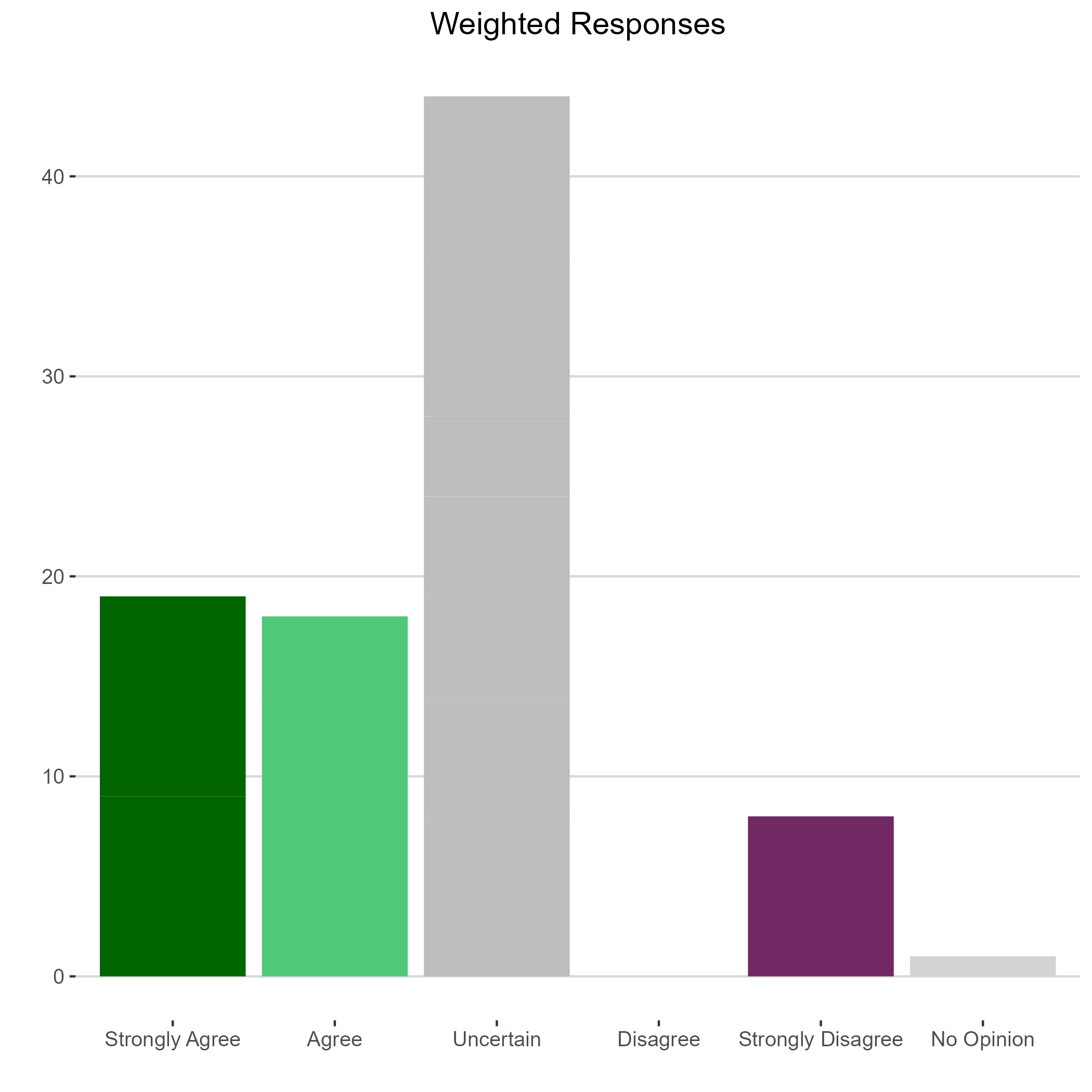| Jonathan Andreas |
Bluffton University |
Agree |
4 |
I'm not clear how much libraries will increase economic output, and it is probably hard to measure, but I'm sure they help at least a little bit. This was one reason Andrew Carnegie spent a large portion of his fortune on libraries. |
| David Brasington |
University of Cincinnati |
Strongly Disagree |
9 |
Libraries are increasingly irrelevant in the information age. |
| Kevin Egan |
University of Toledo |
Agree |
7 |
Recently state funding for public libraries is higher for Ohio than other states at about $43 per citizen per year. I think $40 per citizen is efficient funding to increase free accessible education opportunities for all. When my kids were younger we went to the local library weekly to check out books. Ohio libraries are fantastic. |
| Kenneth Fah |
Ohio Dominican University |
Agree |
8 |
|
| Bob Gitter |
Ohio Wesleyan University |
Agree |
6 |
Actually, the cut is from proposed levels and the proposed amount is a bit more than in 2024. The positive impact of more for libraries, however, won't be great. I support more funds for libraries as a wonderful function for the society I would like to see. |
| Paul Holmes |
Ashland University |
Disagree |
5 |
(1) I think it's likely that alternative funding will be found to replace a fair amount of this; but more importantly (2) I suspect that most of the benefits of libraries don't show up in (measured forms of) economic output. |
| Christian Imboden |
Bowling Green State University |
Uncertain |
5 |
|
| Michael Jones |
University of Cincinnati |
Uncertain |
5 |
|
| Charles Kroncke |
Mount Saint Joseph University |
Uncertain |
5 |
|
| Bill LaFayette |
Regionomics |
Agree |
9 |
Libraries are a clearinghouse for learning and business information that support individuals' training for employment and small business development. Reducing their effectiveness through funding cuts is definitely penny wise and pound foolish. |
| Trevon Logan |
Ohio State University |
Agree |
7 |
|
| Joe Nowakowski |
Muskingum University |
Strongly Agree |
10 |
|
| Ejindu Ume |
Miami University |
Agree |
8 |
|
| Kathryn Wilson |
Kent State University |
Agree |
4 |
|






